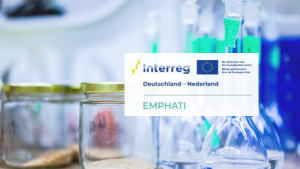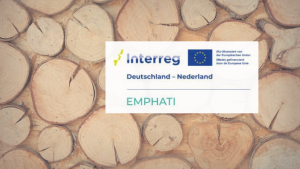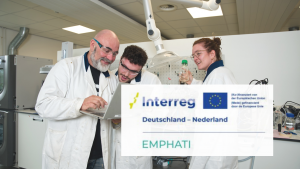Chemport Europe wijde in mei een artikel aan het project EMPHATI, waar de BIO Cooperatieve aan deelneemt. Lees hieronder het hele artikel (vertaald uit het Engels, Deutsche Zusammenfassung unten)!
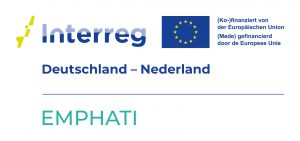
EMPHATI brengt pioniers in PHA samen
Het biologisch afbreekbare plastic PHA (polyhydroxyalkanoaten) heeft een veelbelovende toekomst. Steeds meer organisaties en bedrijven erkennen de aanzienlijke voordelen van dit natuurlijke plastic, dat oplossingen kan bieden voor de wereldwijde problemen veroorzaakt door fossiele kunststoffen. De centrale vraag is: welke PHA-gebaseerde producten zijn veelbelovend?
Dit is een van de cruciale kwesties in het EMPHATI-project, dat momenteel in Noord-Nederland en Noord-Duitsland loopt. EMPHATI is verbonden met een soort fonds dat haalbaarheidsstudies, praktisch onderzoek en pilotprojecten ondersteunt. Dit is bedoeld om de ontwikkeling van nieuwe duurzame en milieuvriendelijke producten te versnellen.
En dit is een positieve ontwikkeling, volgens Sytze Keuning, bestuurslid van de BIO Cooperative, die opkomt voor ondernemers in de noordelijke bio-economie. “Wij zijn een van de initiatiefnemers van het project. PHA heeft groot potentieel, vooral als we de waardeketen kunnen versterken. Bedrijven hebben grote hoeveelheden en leveringszekerheid nodig, wat we alleen kunnen bereiken door goede samenwerking door de gehele waardeketen.”
EMPHATI richt zich deels op het bepalen hoe deze bio-gebaseerde materialen op grote schaal geproduceerd kunnen worden. Het doel is om milieuvriendelijke toepassingen in spuitgieten en 3D-printen te ontwikkelen binnen de deelnemende productiebedrijven. “Dit zal ons zeker helpen vooruit te komen, naast het verkrijgen van meer inzicht in hoe we de best mogelijke producten uit PHA kunnen maken en hoe we de kunststofmarkt verder kunnen openen. We zijn momenteel op zoek naar partijen met concrete ideeën hierover,” zegt Keuning.
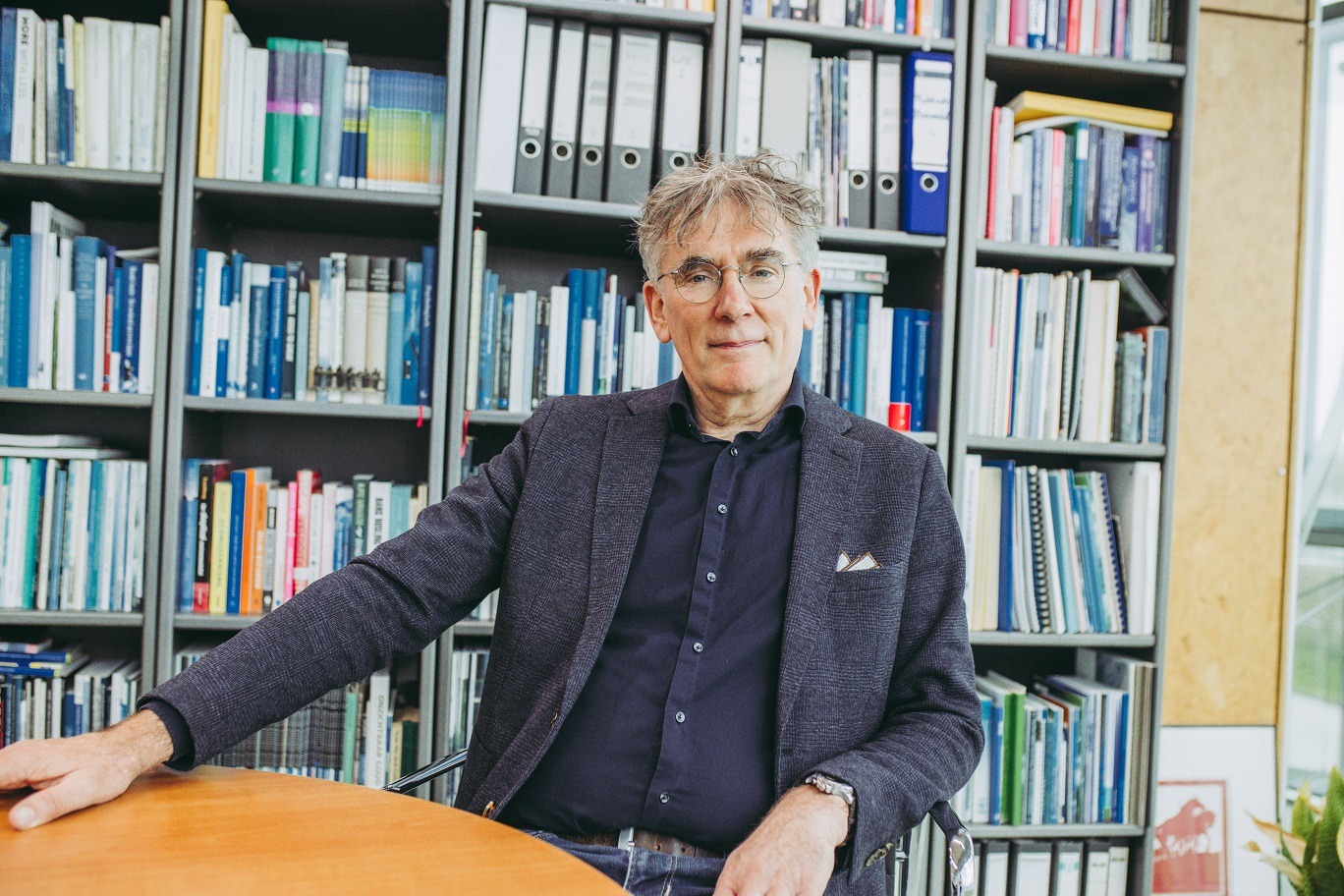
Sytze Keuning
Gremsoverschrijdende samenwerking
De projecten die onder de EMPHATI-paraplu zijn geïnitieerd, zijn per definitie grensoverschrijdend. De kunststofverwerkende industrie in Noord-Duitsland en Noord-Nederland werkt samen met kennisinstellingen aan beide zijden van de grens. Keuning legt uit: “Dit is waardevol omdat we zo een cluster kunnen vormen dat de gehele PHA-productieketen dekt, van onderzoek tot productie.”
In Duitsland is het 3N Kompetenzzentrum Niedersachsen het netwerkorganisatie voor recyclebare grondstoffen en de bio-economie. Frank Köster, als projectmanager verantwoordelijk voor de uitvoering van EMPHATI, vindt de interactie tussen universiteiten en bedrijven een uniek aspect van dit project. Bedrijven hebben grondstoffen nodig die zich op een bepaalde manier gedragen, en in de laboratoria van de instituten testen ze hoe het materiaal kan worden aangepast aan de behoeften van de industrie.
Dit varieert tussen de Hochschule Bremen en NHL Stenden Hogeschool in Emmen. Köster zegt: “EMPHATI richt zich voornamelijk op de toepassing van PHA. We gebruiken machines om te testen hoe we ervoor kunnen zorgen dat de nieuwe materialen aan onze verwachtingen voldoen.”
Dit omvat het testen van hoe PHA fossiele materialen in het spuitgietproces kan vervangen. “Het is heel belangrijk om te laten zien dat dit mogelijk is,” zegt Köster. Dit is noodzakelijk om in de toekomst serieus te kunnen concurreren op de kunststofmarkt. En dankzij de goede samenwerking in dit project, dat een grote regio aan beide zijden van de grens beslaat, laten we zien dat we regionaal op grote schaal kunnen produceren.”
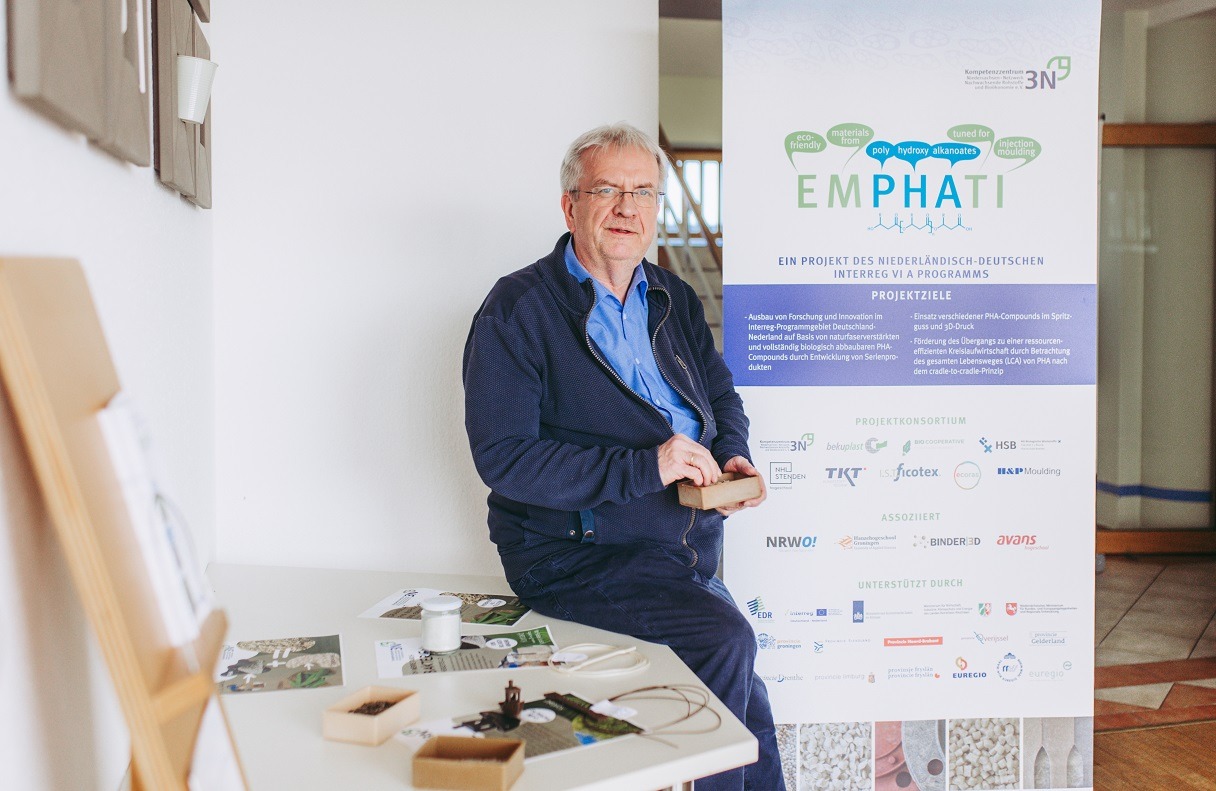
Frank Köster
Beschikbare vouchers
EMPHATI bestaat uit twee delen. In het gesloten gedeelte werken huidige partners aan het onderzoeken van de exacte bijdrage die PHA kan leveren aan een duurzame wereld. Er worden bijvoorbeeld uitgebreide studies uitgevoerd naar de levenscyclusanalyse van PHA.
In het open gedeelte is er ruimte voor nieuwe projectideeën. Subsidievouchers zijn beschikbaar voor projecten die de ontwikkeling van nieuwe toepassingen met PHA stimuleren. Dit omvat het ontdekken van welke vezelcombinaties ideaal zijn voor specifieke toepassingen en welke stoffen de basis moeten vormen voor nieuwe materialen voor 3D-printen en meer. Keuning zegt: “Inzicht verkrijgen is waar het om gaat. Voor de deelnemende partijen, maar ook voor de industrie als geheel.”
EV Biotech is een van de bedrijven die veel baat kan hebben bij EMPHATI. Het in Groningen gevestigde bedrijf gebruikt micro-organismen om chemische verbindingen op een natuurlijke en duurzame manier te creëren, en PHAs zijn dergelijke verbindingen die van belang zijn voor het bedrijf.
CCO Linda Dijkshoorn zegt: “EMPHATI biedt ons de mogelijkheid om uitgebreid onderzoek te doen naar de mogelijkheden van PHA. Voor ons betekent dit ontdekken welke eigenschappen veelbelovende PHAs moeten hebben. Op basis daarvan kunnen we bepalen hoe we ons fermentatieproces het beste kunnen opzetten.”
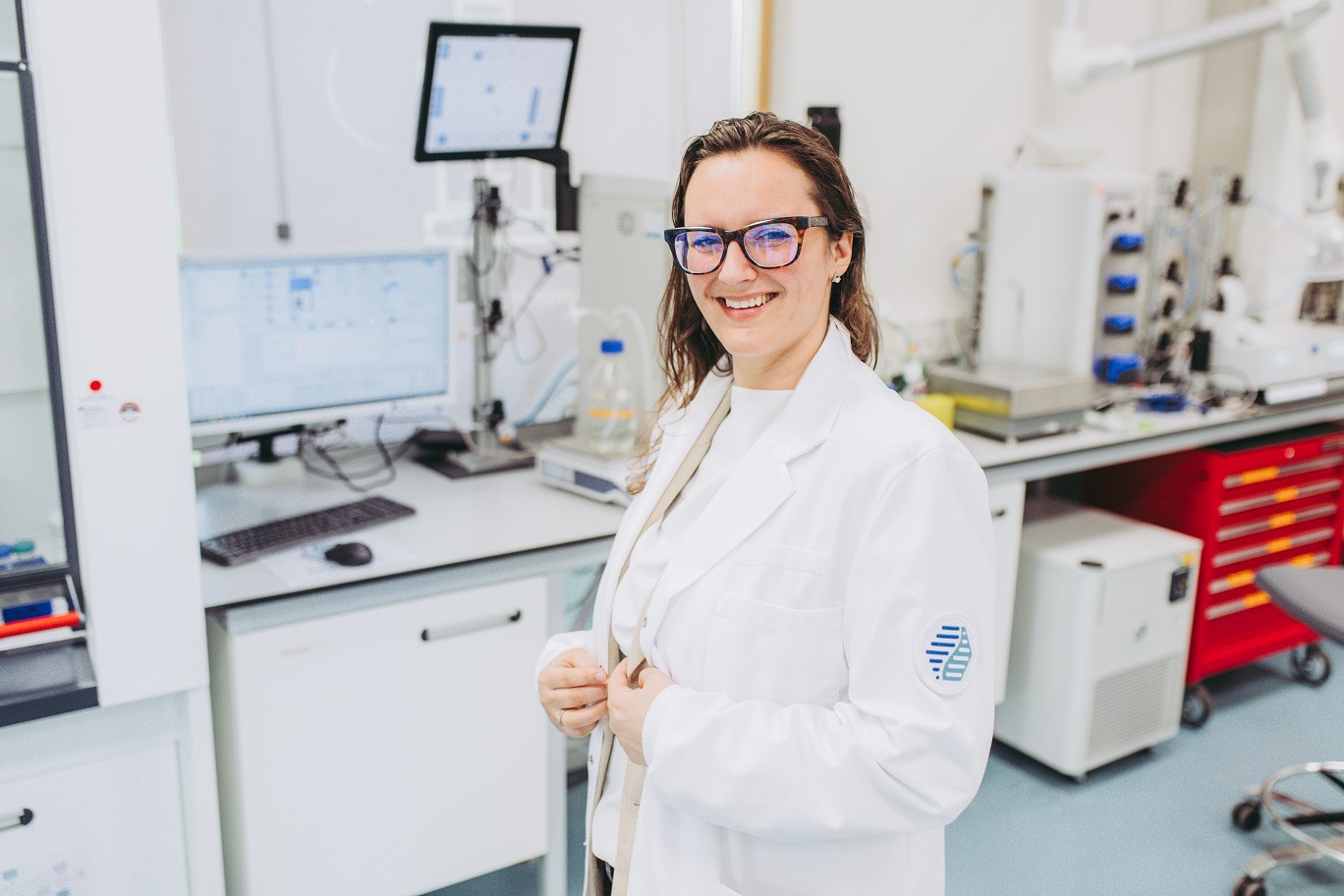
Linda Dijkshoorn
De leveringsketen sluiten
EV Biotech kan hele series van verschillende soorten PHA produceren met behulp van micro-organismen. Dit is een kostbaar proces. “Daarom is de subsidie van EMPHATI zo welkom. Op deze manier leren we eerst veel en breiden we ons netwerk uit, ook met potentiële klanten, voordat we grootschalige productie starten.”
PHA’s stonden al op de radar van EV Biotech. Het bedrijf werkt met een internationale groep aan het maken van natuurlijke kunststoffen uit biologisch afgebroken katoen. Dijkshoorn zegt: “Binnen het EMPHATI-netwerk kunnen we zien of we kunnen samenwerken met meer kennisinstellingen en bedrijven. We willen dit jaar zeker meer projecten via EMPHATI doen omdat het zoveel kennis en ervaring biedt.”
De leveringsketen sluiten is een van de grote voordelen die het uitgebreide netwerk van partners en deelnemende bedrijven in EMPHATI biedt. Voor bedrijven zoals EV Biotech is dit essentieel. “Wanneer je met een nieuw materiaal werkt, wil je dat de levering van grondstoffen geregeld is, maar zeker ook de afzet van eindproducten. Anders krijg je het niet van de grond.”
Dat er een markt is voor PHA—mits het op een manier wordt geproduceerd die de industrie kan gebruiken—is zeker voor Köster. “We zitten midden in de grondstoffenovergang en moeten op korte termijn fossielvrij worden, zelfs in de kunststofindustrie. Snelheid is het mantra. Klanten uit de industrie vragen op grote schaal duurzame alternatieven voor fossiele materialen. Met EMPHATI werken we gezamenlijk aan een aantrekkelijk aanbod.”
PHA
Polyhydroxyalkanoaten (PHA) zijn biologisch afbreekbare polymeren die door verschillende micro-organismen zoals bacteriën en archaea worden geproduceerd als reservevoorraden van energie en koolstof. Deze polymeren hebben eigenschappen die lijken op veel conventionele kunststoffen, maar ze zijn biologisch afbreekbaar en milieuvriendelijker. De eigenschappen van PHA’s kunnen variëren, afhankelijk van het specifieke type en de productiemethode. Ze kunnen bijvoorbeeld zowel flexibel als stijf zijn.
Ruimte voor projecten
EMPHATI heeft tot half 2025 nog subsidies beschikbaar voor nieuwe projecten. Dit kunnen zowel pilotstudies als haalbaarheidsstudies zijn. Pilotprojecten omvatten de ontwikkeling en testen van innovatieve procestechnologieën, processen, producten en toepassingen met betrekking tot PHA. Het doel van een haalbaarheidsstudie is om het potentieel van een PHA-project te onderzoeken en analyseren. Voor beide soorten projecten is een subsidie beschikbaar van 50%, tot €75.000 en €10.000 respectievelijk.
Meer informatie over de voorwaarden en indieningsmethoden is te vinden op https://biocooperative.nl/emphati/ en https://www.3-n.info/emphati/.
International Partners
De projectpartners in het EMPHATI-project zijn:
BIO Cooperative, 3N Kompetenzzentrum e.V., Ecoras, bekuplast GmbH, TKT Kunststoff-Technik GmbH, H&P Moulding Emmen B.V., IST Ficotex e.K., Hochschule Bremen, NHL Stenden, BINDER 3D B.V., Avans Hogeschool, Hanze Hogeschool Groningen, Netzwerk Oberfläche NRW e.V.
EMPHATI is an Interreg project and is made possible by:

Bron artikel en foto’s: chemporteurope.eu
Deutsche Zusammenfassung
EMPHATI: Gemeinsam PHA-Pioniere vereinen
Das biologisch abbaubare Plastik PHA (Polyhydroxyalkanoate) bietet vielversprechende Perspektiven als nachhaltige Alternative zu fossilen Kunststoffen. Im Rahmen des EMPHATI-Projekts, das in Nord-Niederlanden und Nord-Deutschland durchgeführt wird, arbeiten Unternehmen und Wissenseinrichtungen gemeinsam an der Entwicklung und Anwendung von PHA.
Sytze Keuning, Vorstand der BIO Cooperative, betont: „PHA hat großes Potenzial, vor allem wenn wir die Wertschöpfungskette stärken. Unternehmen benötigen große Mengen und Versorgungssicherheit, was nur durch gute Zusammenarbeit entlang der gesamten Wertschöpfungskette erreicht werden kann.“
EMPHATI konzentriert sich teilweise darauf, wie PHA in großem Maßstab produziert werden kann. Ziel ist es, umweltfreundliche Anwendungen im Spritzguss und 3D-Druck zu entwickeln. „Wir suchen derzeit nach Partnern mit konkreten Ideen“, sagt Keuning.
Das Projekt ist grenzüberschreitend und umfasst Kooperationen zwischen der Kunststoffindustrie in Nord-Deutschland und Nord-Niederlanden sowie Wissenseinrichtungen auf beiden Seiten der Grenze. Frank Köster vom 3N Kompetenzzentrum Niedersachsen hebt hervor: „Die Zusammenarbeit zwischen Universitäten und Unternehmen ist einzigartig. Wir testen, wie PHA an die Bedürfnisse der Industrie angepasst werden kann.“
In der offenen Projektphase gibt es Raum für neue Ideen und Fördervouchers für Projekte, die neue PHA-Anwendungen fördern. „Einblicke gewinnen ist entscheidend, sowohl für die Beteiligten als auch für die gesamte Industrie“, so Keuning.
EV Biotech ist ein Beispiel für ein Unternehmen, das von EMPHATI profitieren kann. CCO Linda Dijkshoorn erklärt: „EMPHATI ermöglicht uns umfassende Forschung zu den Möglichkeiten von PHA und hilft uns, unser Fermentationsverfahren zu optimieren.“
Das Projekt hat noch bis Mitte 2025 Fördermittel für neue Projekte verfügbar. Weitere Informationen finden Sie auf [biocooperative.nl/emphati](https://biocooperative.nl/emphati) und [3-n.info/emphati](https://www.3-n.info/emphati/).



